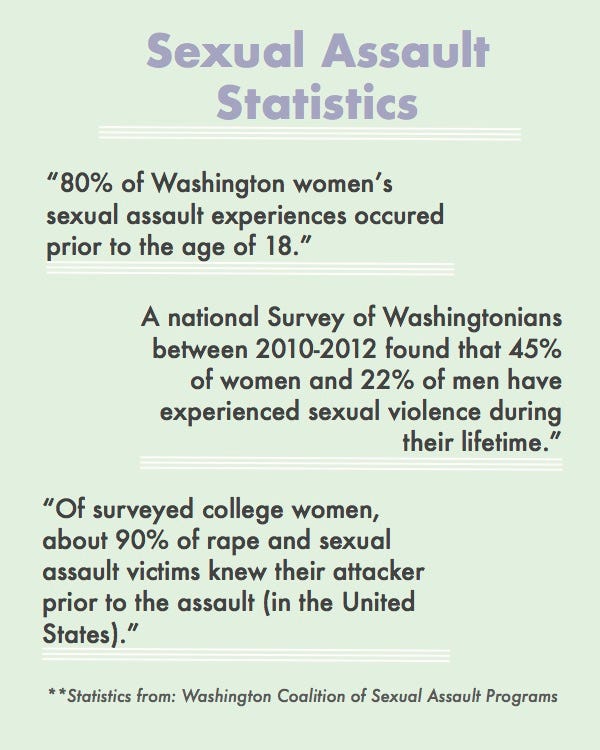Do I Tell?

Breaking the stigma of not reporting a sexual assault and sharing resources to help survivors.
Story by Grace Yatsko
[embed]https://soundcloud.com/klipsun-magazine/do-i-tell[/embed]
I t wasn’t the typical “stranger in a dark alley” narrative that most people are familiar with.
No, my narrative was something I could only define a few years after it happened. I began to ask myself: Why was it embarrassing to tell family and friends? Had I brought this on to myself? Would this shame ever fade?
And why did he hug me afterwards?
The decision to report or not report is a challenging one that sexual assault survivors should have full control over. But sadly, so many of us feel that if we don’t tell anyone about it, we will not find peace.
After the assault, I was supported by many friends who let me talk it out without pressuring me to make a decision. The choice to share my story was something I’d decide years after it happened.
Now, I understand what happened to me. I understand that I did not want what he did to me.
And I understand that healing isn’t something that happens overnight.
I still don’t find it plausible to report what happened to me after all this time because of the details I can’t quite remember about that awful moment, the large gap of time I spent quiet and the trauma associated with retelling my story over and over again.

“The first thing that I would say to anybody is that there is no right answer to this question [on whether or not to report],” said Elizabeth Hart, Support Program Manager at Domestic Violence and Sexual Assault Services. “But figuring out what is the best thing for each individual is going to be very personal and has no right or wrong answer.”
According to the Rape, Abuse & Incest National Network, an American is sexually assaulted every 73 seconds. Meanwhile, only five out of every 1,000 perpetrators will end up in prison.
There’s a stigma surrounding survivors who choose not to report, and I felt that weight fully as I questioned my decision over the years. However, it isn’t hard to see why survivors choose to keep their stories private, when barely any perpetrators serve time for what they’ve done.
It’s also important to note that survivors don’t need to tell their stories in order to begin the healing process.
“Something that I think can be helpful for survivors is what justice and healing looks like for them,” said Elizabeth Montoya, Director for the Commission on Sexual and Domestic Violence.
“For one survivor it could look like the legal system and seeking prosecution, for another survivor it can be being believed by the person they’re reporting to,” Montoya said. “Or, for another survivor, their path to healing is connecting with a community of other survivors.”
Three years after my assault, I still pick at the loose skin on my fingers when I see someone who resembles him. I still jump if someone brushes my back with their hand. I still have nightmares that we’ll bump into each other one day and he’ll have no idea what he’s done.
I had to find resources for myself to heal and learn to overcome the triggering moments that continue to pop up today.
There are many resources available for survivors to find help.
The Rape, Abuse & Incest National Network has a free live 24/7 chat and hotline available for survivors to use while remaining confidential. The site also has tips and articles to read spanning from “Telling Loved Ones About Sexual Assault” to “Safety Tips for Traveling.”
If you are in Bellingham, Washington and wondering what local resources are available there, The Commission on Sexual and Domestic Violence also has a list of resources. Domestic Violence and Sexual Assault Services also has a wide range of resources available locally.
“We [at DVSAS] want survivors to know what to expect if they choose to report or about the processes,” Hart said. “It [DVSAS] is a safe and confidential place to ask questions.”
The decision to report or not report relies entirely on how survivors want to proceed, and no one should make them feel forced into choosing one or the other.
Reporting my story right after the assault was not the best choice for me, and that is OK. I’m sharing my story now, but it is not a sign of regret for the choice I made before to stay silent.
Instead, I’m using my voice to show the level of care and empathy we should have for survivors.
Listen to survivors and support the decision they make by letting them know you’re there for them. Even if someone chooses to report an assault years later, their story is still valid and deserves to be respected.
